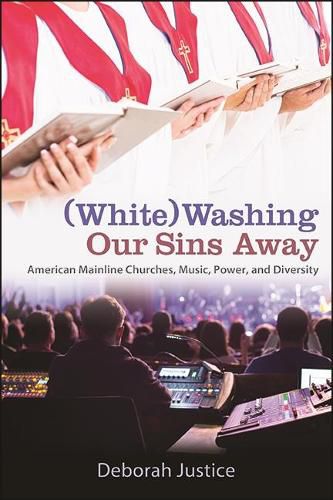Readings Newsletter
Become a Readings Member to make your shopping experience even easier.
Sign in or sign up for free!
You’re not far away from qualifying for FREE standard shipping within Australia
You’ve qualified for FREE standard shipping within Australia
The cart is loading…






This title is printed to order. This book may have been self-published. If so, we cannot guarantee the quality of the content. In the main most books will have gone through the editing process however some may not. We therefore suggest that you be aware of this before ordering this book. If in doubt check either the author or publisher’s details as we are unable to accept any returns unless they are faulty. Please contact us if you have any questions.
What if simply changing musical styles could resurrect social power and religious vitality? By the early 1990s, Christianity was losing ground nationally, and mainline Protestants were trending even Whiter and older than America’s overall demographic trajectory. The churches knew they needed to diversify. Yet, many mainline churches focused their energies on the so-called Worship Wars, intense aesthetic and theological controversies running through much of White Christian America. Historically, churches had only supported one musical style; now, many mainline Protestant congregations were willing to risk internal schism to support both Contemporary worship-centered around guitars, praise bands, and choruses-and Traditional worship with its pipe organs, chancel choirs, and hymns. Surely, they thought, musical diversity would broadcast tolerance and bring in new members-perhaps it would even help them regain their historically central role in American society. Based on years of ethnographic research, (White)Washing Our Sins Away explores how American mainline Protestants used internal musical controversies to negotiate their shifting position within the nation’s diversifying religious and sociopolitical ecosystems.
$9.00 standard shipping within Australia
FREE standard shipping within Australia for orders over $100.00
Express & International shipping calculated at checkout
This title is printed to order. This book may have been self-published. If so, we cannot guarantee the quality of the content. In the main most books will have gone through the editing process however some may not. We therefore suggest that you be aware of this before ordering this book. If in doubt check either the author or publisher’s details as we are unable to accept any returns unless they are faulty. Please contact us if you have any questions.
What if simply changing musical styles could resurrect social power and religious vitality? By the early 1990s, Christianity was losing ground nationally, and mainline Protestants were trending even Whiter and older than America’s overall demographic trajectory. The churches knew they needed to diversify. Yet, many mainline churches focused their energies on the so-called Worship Wars, intense aesthetic and theological controversies running through much of White Christian America. Historically, churches had only supported one musical style; now, many mainline Protestant congregations were willing to risk internal schism to support both Contemporary worship-centered around guitars, praise bands, and choruses-and Traditional worship with its pipe organs, chancel choirs, and hymns. Surely, they thought, musical diversity would broadcast tolerance and bring in new members-perhaps it would even help them regain their historically central role in American society. Based on years of ethnographic research, (White)Washing Our Sins Away explores how American mainline Protestants used internal musical controversies to negotiate their shifting position within the nation’s diversifying religious and sociopolitical ecosystems.